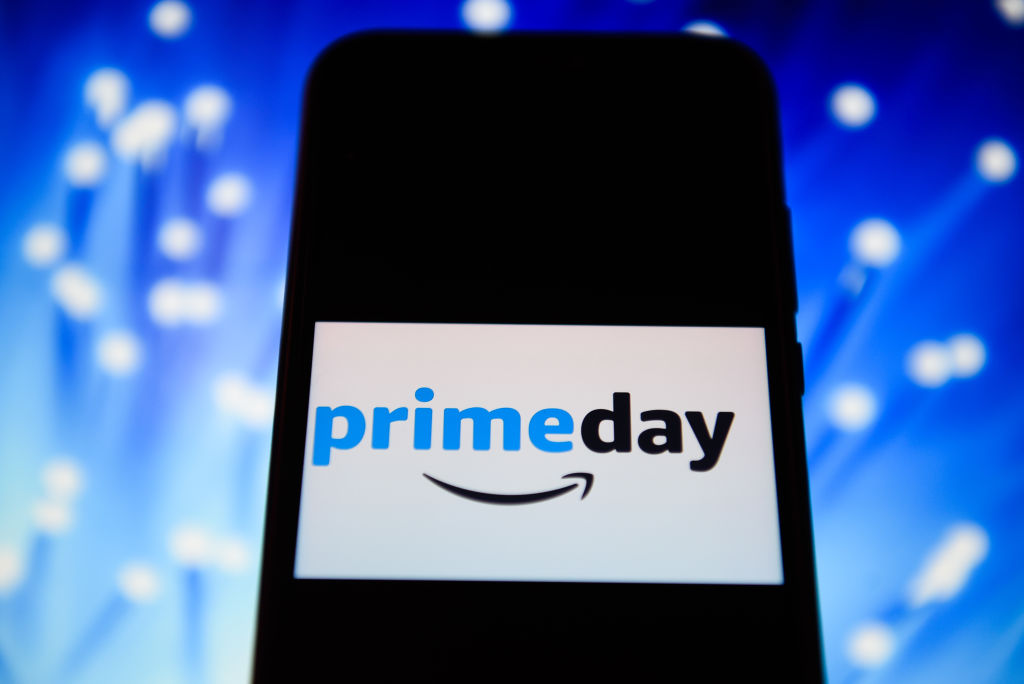5 Ways to Spend a Financial Windfall
You’ve come into a small fortune -- great! Now don’t blow it.

Profit and prosper with the best of Kiplinger's advice on investing, taxes, retirement, personal finance and much more. Delivered daily. Enter your email in the box and click Sign Me Up.
You are now subscribed
Your newsletter sign-up was successful
Want to add more newsletters?

Delivered daily
Kiplinger Today
Profit and prosper with the best of Kiplinger's advice on investing, taxes, retirement, personal finance and much more delivered daily. Smart money moves start here.

Sent five days a week
Kiplinger A Step Ahead
Get practical help to make better financial decisions in your everyday life, from spending to savings on top deals.

Delivered daily
Kiplinger Closing Bell
Get today's biggest financial and investing headlines delivered to your inbox every day the U.S. stock market is open.

Sent twice a week
Kiplinger Adviser Intel
Financial pros across the country share best practices and fresh tactics to preserve and grow your wealth.

Delivered weekly
Kiplinger Tax Tips
Trim your federal and state tax bills with practical tax-planning and tax-cutting strategies.

Sent twice a week
Kiplinger Retirement Tips
Your twice-a-week guide to planning and enjoying a financially secure and richly rewarding retirement

Sent bimonthly.
Kiplinger Adviser Angle
Insights for advisers, wealth managers and other financial professionals.

Sent twice a week
Kiplinger Investing Weekly
Your twice-a-week roundup of promising stocks, funds, companies and industries you should consider, ones you should avoid, and why.

Sent weekly for six weeks
Kiplinger Invest for Retirement
Your step-by-step six-part series on how to invest for retirement, from devising a successful strategy to exactly which investments to choose.
The overwhelming generosity of our family and friends on our wedding day, while greatly appreciated, left me and my husband, Dave, with an enviable problem: What the heck should we do with all our cash gifts? If you’re lucky enough to face a similar question -- perhaps Santa or companies that still award holiday bonuses really do exist -- here are five steps you should take to handle your good fortune:
1. Park it. Don’t take action with your money as quickly as you got it. You might be tempted to throw it all at paying down debt or buying that big-screen TV, but you should take your time to plan a path for each cent. Look at your whole financial picture and work the windfall into your budget. “What we tend to do is focus on one aspect of our finances and forget about the others,” says Nicholas Yrizarry, a financial planner with offices in Reston, Va., and Newport Beach, Cal. “That’s what gets us in trouble.”
Days after our wedding, Dave and I stashed our extra cash in a savings account. We honeymooned and carefully plotted our next money moves while our funds slowly grew at the meager rate offered by Dave’s bank. Had we been better prepared for the sudden wealth, we would have set up a sweeter savings deal before the wedding. With Bankrate.com, you can search for banks offering the best rates. For example, Ally Bank’s online savings account currently yields 1.5% per year and has no minimum balance or monthly fees.
From just $107.88 $24.99 for Kiplinger Personal Finance
Become a smarter, better informed investor. Subscribe from just $107.88 $24.99, plus get up to 4 Special Issues

Sign up for Kiplinger’s Free Newsletters
Profit and prosper with the best of expert advice on investing, taxes, retirement, personal finance and more - straight to your e-mail.
Profit and prosper with the best of expert advice - straight to your e-mail.
2. Prioritize paying off bad debts. You might ask, isn’t all debt bad? Not necessarily. A mortgage, for example, is generally considered good debt -- that is, it’s not so harmful to hold. It typically comes with lower interest rates (these days, under 6%), it’s tax-deductible, and “it’s on an asset that’s appreciating, especially coming out of this real estate lull,” says Yrizarry.
Bad debt, on the other hand, comes with high interest rates “that you’re paying on things that are depreciating or are nonexistent,” Yrizarry says, such as car loans or credit-card balances. Student loans fall into the bad-debt category only if they levy high rates over a short-term period. But generally they’ll have lower rates and be set up for payments over ten years or more, making them less important to pay off right away.
Our first course of action was to clear our credit-card balances. What we saved on interest payments will surely outweigh what we could have earned in savings and money-market accounts, which currently offer rates of just 1.04% a year, on average. And because we’d already begun paying down these debts after our first money talk, we were able to wipe them out entirely and still have money left over.
3. Pad your emergency fund. Dave and I each had some money set aside for inevitable rainy days. But I must admit that my primary backup plan was to call the Bank of Mom and Dad -- especially when it came to pricier problems, such as needing a dental crown.
So we puffed up our cash cushion to about eight months’ worth of expenses, and we plan to build it up even further. Typically, you want an emergency fund that will last three to six months. But because we both work in currently tenuous industries -- he’s a flight instructor working his way up to commercial airline pilot, and I am, obviously, in journalism -- we feel safer keeping even more in reserve. To figure out how much you should set aside for emergencies, punch your numbers into our calculator.
The safest place for your emergency fund is in a high-yield savings or money-market account. Yrizarry recommends ING Direct’s Orange savings account, which has no fees, no minimum balance and currently yields 1.3% a year. For more about emergency funds, see How Much Cash You Really Need. And read Earn 4% on Your Savings for ideas to get more out of your liquid funds.
4. Plan for the future. With your debts and emergency fund taken care of, you can start aiming your extra money at some choice spending goals. Topping our target list is our very first house. Other plans might include a vacation in the short term, or retirement or more education (for us or our potential future kids) in the way-long term.
Whatever your goals may be, timelines will dictate where you should keep the money for each. Yrizarry recommends money-market accounts or certificates of deposit for money you’ll need within five years. Or you can try investing in the stock market if your goal’s time horizon is farther out and you can afford to take on some risk.
5. Play! Now that you’ve done the responsible things first, you can consider spending any leftover dough on something fun. Going back to our first tip here, I must confess: Dave and I didn’t put all our money directly into savings. After being sure we had more than enough for our debts and emergency fund, we pocketed some of the extra cash to spoil ourselves on our honeymoon. And while it’s true we could have used that money to reach some future goals more quickly, we don’t regret our slight splurge. After all, our memories are priceless, right?
With our windfall appropriately allocated, we’ve set the path for all future bonus income: Some will continue to build our emergency fund, and the rest will be divvied up among future goals (and some fun spending, here and there). Now, we just have to finish our thank-you cards.
Profit and prosper with the best of Kiplinger's advice on investing, taxes, retirement, personal finance and much more. Delivered daily. Enter your email in the box and click Sign Me Up.

Rapacon joined Kiplinger in October 2007 as a reporter with Kiplinger's Personal Finance magazine and became an online editor for Kiplinger.com in June 2010. She previously served as editor of the "Starting Out" column, focusing on personal finance advice for people in their twenties and thirties.
Before joining Kiplinger, Rapacon worked as a senior research associate at b2b publishing house Judy Diamond Associates. She holds a B.A. degree in English from the George Washington University.
-
 Dow Adds 1,206 Points to Top 50,000: Stock Market Today
Dow Adds 1,206 Points to Top 50,000: Stock Market TodayThe S&P 500 and Nasdaq also had strong finishes to a volatile week, with beaten-down tech stocks outperforming.
-
 Ask the Tax Editor: Federal Income Tax Deductions
Ask the Tax Editor: Federal Income Tax DeductionsAsk the Editor In this week's Ask the Editor Q&A, Joy Taylor answers questions on federal income tax deductions
-
 States With No-Fault Car Insurance Laws (and How No-Fault Car Insurance Works)
States With No-Fault Car Insurance Laws (and How No-Fault Car Insurance Works)A breakdown of the confusing rules around no-fault car insurance in every state where it exists.
-
 21 Last-Minute Gifts for Grandparents Day 2025 to Give Right Now
21 Last-Minute Gifts for Grandparents Day 2025 to Give Right NowHoliday Tips Last-minute gifting is never easy. But here are some ideas to celebrate Grandparents Day.
-
 Texas Sales Tax-Free Weekend 2025
Texas Sales Tax-Free Weekend 2025Tax Holiday Here's what you needed to know about the Texas sales tax holiday.
-
 Alabama Tax-Free Weekend 2025
Alabama Tax-Free Weekend 2025Tax Holiday Here’s everything you need to know about the 2025 back-to-school Alabama sales tax holiday.
-
 The Sweet 23: States Where Twix and Kit Kat Avoid the ‘Candy Tax’
The Sweet 23: States Where Twix and Kit Kat Avoid the ‘Candy Tax’State Taxes There’s something spooky this Halloween, and it’s not just the ghouls. Find out if your state’s sales tax takes a bite out of sweet savings.
-
 Florida Back-to-School Tax-Free Holiday 2025
Florida Back-to-School Tax-Free Holiday 2025Sales Taxes The new tax-free holiday in Florida brought month-long savings on computers, clothing and other school supplies.
-
 Five Reasons You Shouldn't Shop Amazon's Prime Big Deal Days
Five Reasons You Shouldn't Shop Amazon's Prime Big Deal DaysSmart Buying Are Amazon Prime Big Deal Days still a good deal? We'll break it down.
-
 Four Smart Steps To Take Before Buying Your First Home
Four Smart Steps To Take Before Buying Your First Homehome Buying your first home can be daunting. Here are four things you need to do years before you start house-hunting to prepare financially for the biggest purchase of your life.
-
 Best Cash Back Credit Cards
Best Cash Back Credit CardsCredit Cards If you're searching for a credit card that rewards you for everyday purchases, we've chosen the best.